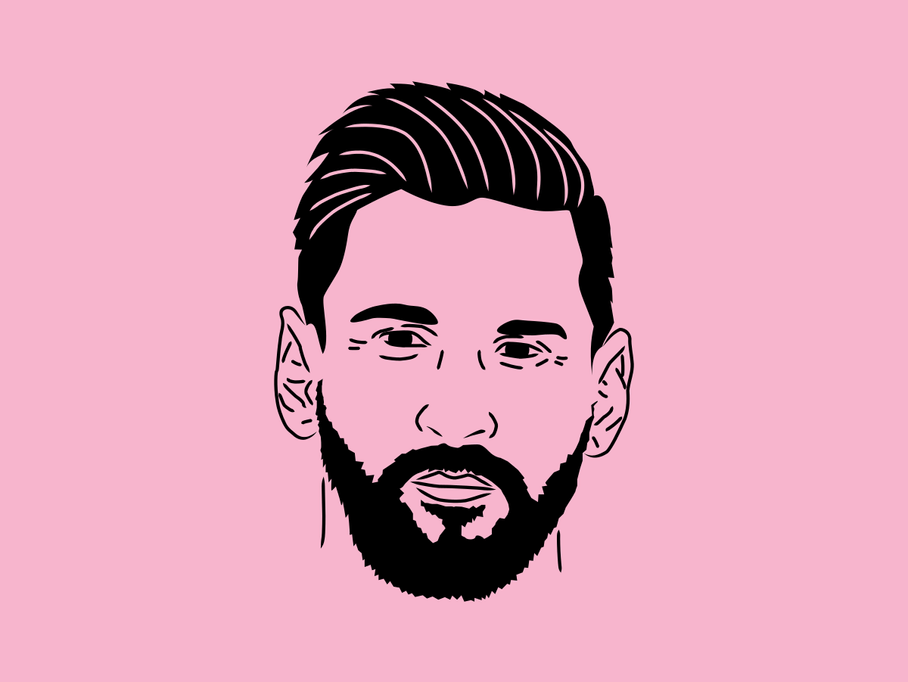Lionel Messi, World Cup winner and possibly greatest football player to walk the Earth, is joining Inter Miami. Here are the three negotiation learnings from the deal announced on June 7th, 2023.
- Information is Power – go get it by asking questions. Al-Hilal failed to ask enough questions to understand what would motivate Messi to join their team in Riyadh, Saudi Arabia.
- Understand the other parties’ interests. If Al-Hilal had asked enough questions, they would have understood that Leo was interested in much more than money.
- The Best Story Wins. Inter Miami told an incredible story of value creation for Messi,because it had been before for David Beckham; Messi’s new boss and future peer in MLB owners meetings.
A lot has and will be written about Lionel Messi – 35 major trophies with FC Barcelona, including four Champions League Titles, a World Cup Final and Golden Ball winner with Argentina, as well as a record seven Ballon d’Or trophies (annual award for best footballer in the world). But on June 7th, it was announced that Messi will join Club Internacional de Futbol Miami (or Inter Miami) and grace the United States of America with his footballing brilliance for the foreseeable future.
As athletes of his pedigree often do, Messi had many options for his next club. Paris Saint-Germain would have loved to retain Messi’s services, Saudi Arabia’s Al-Hilal offered the Argentine a rumored $1.6 Billion (yes, with a ‘B’) to play soccer in the Middle East, and Barcelona was keen to bring back their talisman for a Hollywood movie ending. Ultimately, Messi opted to join the upstart in the US, Major League Soccer (MLS).
To understand why Miami was able to compete with the astronomical sum of money offered by the winningest team in Asia, and two historic powers in Europe, one only need look through the lens of negotiation to understand what was really at stake, and what mattered to Messi.
Let us first look at reported offers from another team involved – Al-Hilal was reported to offer $1.6 Billion dollars for Messi’s services. After the decision was made for Messi to join Inter Miami, he stated, “If it had been a matter of money, I’d have gone to Arabia or elsewhere. It seemed like a lot of money to me”, “The truth is that my final decision goes elsewhere [sic] and not because of money”. Al-Hilal failed on two fronts. First, they failed to gather enough information to understand what would motivate Messi to come to Saudi Arabia for the next three years. Second, they did not align their offer to his interests, as Messi later shared with the media. These two failures in negotiation are common – negotiators often do not ask enough questions or get to the heart of what matters most. In this case, Messi cared less about the immediate influx of cash, as we will see later, and more about building something larger with a committed partner. Enter MLS and Inter Miami.
It has been reported by The Athletic that beyond the typical salary and bonus structure, Messi’s contract will include 1) a percentage of subscriptions to MLS Season Pass from Apple TV+, to be paid by Apple to Messi directly, 2) a percentage of Inter Miami shirt sales, to be paid directly by Adidas, and 3) the possibility of acquiring a MLS franchise at the end of his career.
What is key to the Inter Miami offer is the cooperation between the clubs and leadership of key partners. MLS is a closed system, like the NFL where the teams are owned and operated within a league, and no one can enter the league without the commissioner and/or owners’ permission. MLS has shared profits for all the participating clubs, including the TV broadcasting rights. In the spring of this year, MLS and Apple signed a $2.5 Billion agreement that runs for the next ten years. MLS was able to move as a collective to court Messi, approving some of that shared revenue to be funneled to Messi, who will undoubtedly increase the viewership of the league and subscriptions for Apple. Apple is also rumored to be working on a four-part documentary about Lionel Messi’s life and career. It seems MLS was able to work out a similar deal for Adidas. While the fundamental alignment of the parties’ interests on these two contract provisions are impressive, they are not likely what won Messi’s favor, but rather recognitions of the gravitational pull of Messi. It is my belief that the third provision, and another world soccer star, are what won the day for Inter Miami, MLS, and soccer in the United States of America.
To understand the last part of the deal, we need to look back to the last time a superstar joined MLS. David Beckham – England midfielder, heartthrob, husband of a Spice Girl and Manchester United legend – was the first international superstar of the modern era to join MLS. In summer of 2007, Beckham was announced as the newest member of the LA Galaxy. It was huge news in the football world, and Beckham’s star power grew the game in the US. In 2006, the broadcasting rights for M
gue sold the rights for the next eight years to Fox, ESPN, and Univision for $90 million per year.
However, Beckham ended up getting the better end of the deal. Within his contract was the same provision being offered to Messi – at the end of his career, Beckham would be able to buy his own MLS franchise for a fixed fee – $25 Million. In 2018, Beckham exercised this option and Inter Miami was born. Yes, the same team that just courted Messi to the “305” is the team that proves the value of the third provision of the contract. And just for comparison, in 2013, New York City FC paid a $100 million expansion fee. In 2017 and 2018, Austin FC, Cincinnati FC, and Nashville SC each paid $150 million to join MLS and in 2019, St. Louis FC and Charlotte FC paid $200 million and $325 million, respectively to join the league. Beckham saved roughly $125 million with his contract provision, and Inter Miami is estimated to be worth over $500 million, prior to signing the Argentine legend (a 2000%+ ROI on the $25 million investment). MLS was able to tell a convincing story to Messi about how owning an MLS team would ultimately be well worth his time and energy.
The acquisition of the worldwide superstar seems to have worked, just two days later. Messi’s announcement has added 4.1M Instagram followers to Inter Miami CF’s account in less than 24 hours (LAFC – last year’s champions – have less than 1M followers). In addition, all Inter Miami’s home and away games for the 2023 season have sold out in the US, with resale tickets going for $300-$3,500+ on the secondary market.
So, what did we learn about negotiations from this exercise?
- Information is Power – go get it by asking questions
- Understand the other parties’ interests
- The Best Story Wins



